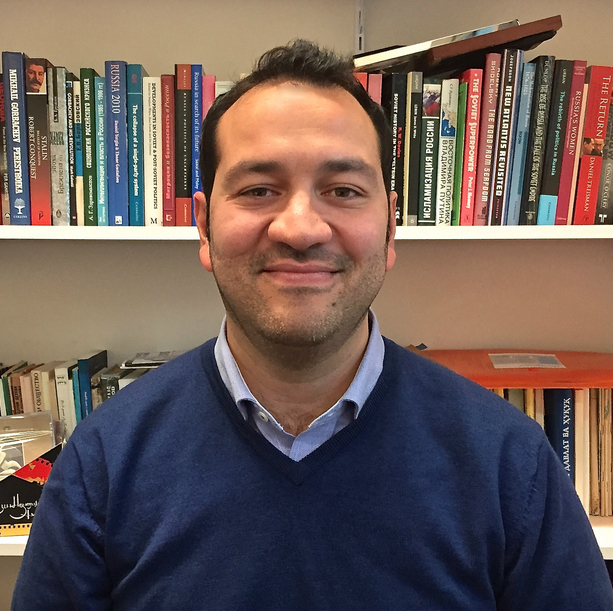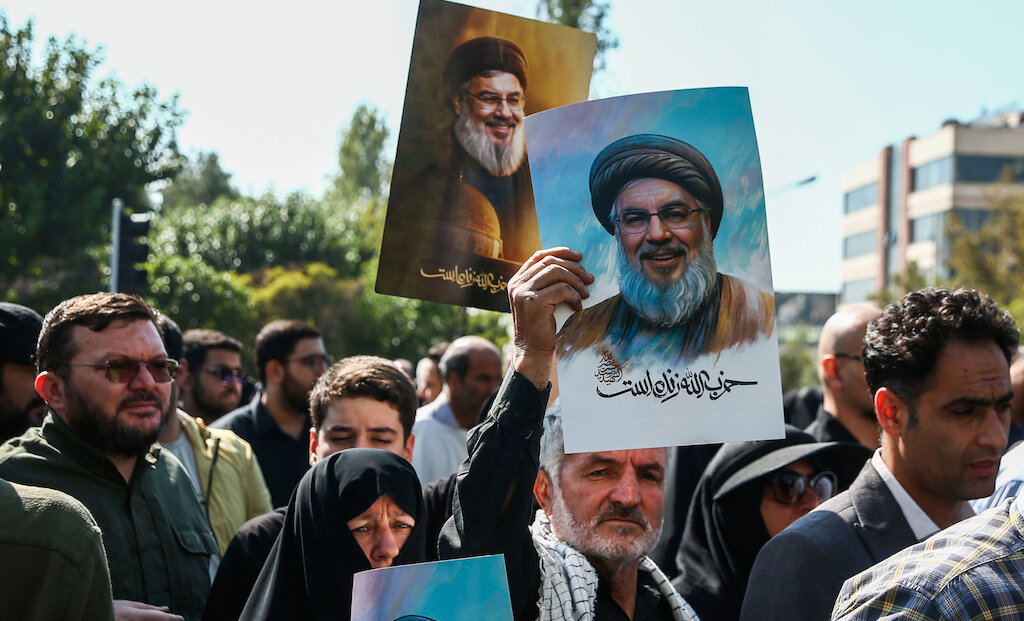Could Morocco’s Political Shakeup Empower More Radical Elements?
Editor’s Note: This piece originally appeared on Markaz.
Published by The Lawfare Institute
in Cooperation With

Editor’s Note: This piece originally appeared on Markaz.
In a recent post about the political deadlock in Morocco, we highlighted the “king’s dilemma”: how to liberalize without losing control. King Mohammed VI has now made his move, dismissing the popular head of government, Abdelilah Benkirane, on March 15. The king cited Benikrane’s inability to form a government after five months of failed negotiations. He then tasked former Foreign Minister (from 2012 to 2013) Saadeddine El Othmani—Benkirane’s number two in the Party of Justice and Development (PJD)—to form a coalition government, which he promptly did within a week.
During the 2011 Arab Spring protests, Morocco’s king—among other leaders in the region—promised a greater degree of power sharing. But recent moves suggest that he continues to largely control the political sphere, similar to the trajectories followed by other regimes across the region. This has raised another dimension of the King’s Dilemma: Can curtailing the formal opposition create political martyrs and cultivate a new, more radical opposition?
Le Blockage Unblocked
The PJD has become another co-opted opposition party in Moroccan politics, and this latest development only deepens that fact.
After the PJD won last October’s elections, Benkirane tried to push back against the palace’s attempts to weaken the popular Islamist party. The National Rally of Independents Party (RNI), led by the king’s friend and businessman Aziz Akhannouch, insisted that smaller parties such as the Constitutional Union (UC) and the Social Union of Popular Forces (USFP) be part of the coalition. The palace and media attempt to give the impression of the king as a neutral arbiter, above the fray of Moroccan politics, but the dominant role of Akhannouch in stalling the coalition process and battling Benkirane demonstrated to what extent the palace remains “master of the political game.”
Akhannouch pushed various conditions onto Benkirane’s coalition government to try to weaken the PJD’s role in the governing coalition. Benkirane, for his part, tried to instead align with the party that finished in third place, Istiqlal. Such an arrangement would yield more representation in the coalition for the PJD.
However, after nearly six months of failed negotiations and an impressive media campaign to blame Benkirane, King Mohammed VI returned from a tour of Sub-Saharan Africa and promptly announced the end of the Benkirane era. While the Moroccan media focused on Benkirane’s inability to form a government, long-time journalist Ali Anouzla argued that his removal was a political decision to diffuse a threat to the regime, writing: “The outgoing prime minister’s statements over the past two years made him the biggest official opponent of Morocco’s deep state.”
Once tasked with forming the government, Othmani recognized that his options and time were limited, and moved quickly to form a coalition with five other parties...
Othmani was next in line in the PJD—Benkirane’s number two and close confidant. Once tasked with forming the government, Othmani recognized that his options and time were limited, and moved quickly to form a coalition with five other parties, juxtaposed against Benkirane’s lengthy battle.
Benkirane publicly expressed respect for the palace’s decision, and the new government ministers visited him the day after the Othmani government was announced, demonstrating his continued popularity. Rumors abound that Benkirane will be named a royal advisor, which could neutralize any threat he might pose to the legitimacy of the new Othmani government and silence any objections he may have on the constitutionality of the king’s decision.
So despite the apparent shake-up, the PJD simply became another co-opted opposition party— to the Socialist Union of Popular Forces (USFP), which was brought into the regime’s fold in the late 1990s and early 2000s. Morocco’s political scene is well under the control of the palace and the royal cabinet.
The New Othmani Government
Palace interventionism before and after the October parliamentary elections has diminished the influence of the PJD, the only Islamist opposition party in government, while empowering the king’s loyalist party, RNI, which is a party of palace technocrats. It has also signalled a disregard for democratic institutions and any substantive level of power sharing between the king and political parties.
Recent cabinet changes reflect the deliberate marginalization of PJD figures in government. PJD representatives now hold fewer than half of the ministerial positions, in spite of its electoral triumph. RNI members, in contrast, now hold the most important portfolios of foreign affairs, justice, industry, and finance—even though RNI finished fourth in the October elections, winning only 37 seats.
In a critical op-ed in the Moroccan weekly Telquel, Editor-in-Chief Aicha Akalay wrote that Akhannouch “has gained a privilege normally granted only through winning elections…with its allies in the UC and the USFP, the RNI has become the main force behind this government.”
Altogether, the current government does not reflect the popular will of Moroccan citizens. It is largely controlled by a party of palace technocrats, and the country knows this all too well.
More Radical Opposition?
Just as the political death in the early 2000s of the USFP and then-Prime Minister Abderrahmane Youssoufi’s left-of-center government left a void for an opposition movement, the weakening of the PJD can also open a pathway. Politics abhors a vacuum, and there are two key ways it might be filled: a stronger opposition might emerge from outside the system, or the PJD could split. Much will depend on the legacy of the 2011 uprisings and the real popularity of the PJD.
Politics abhors a vacuum, and there are two key ways it might be filled: a stronger opposition might emerge from outside the system, or the PJD could split.
Where could this more radical opposition come from? Possibly the left-wing Democratic Left Federation (FGD), a small but promising player in the political system. However, even with a strong social media campaign and major outreach efforts, FGD won only two seats in parliament. The Moroccan left often appears divided, weak, and far removed from the concerns of average Moroccans—focused, instead, on its divisions with the Islamists and the place of the palace in politics.
Another potential opposition source to watch is popular Islamist players such as Al-Adl Wal Ihsane. It boycotted the 2016 elections, having long been sceptical of the fruits of any formal involvement in politics. As the most popular Islamist association in Morocco, and in the context of a weakened PJD, Al-Adl Wal Ihsane has an opening now, more than ever, to pose a fundamental challenge to Morocco’s system. In fact, the legitimacy of substantive opposition groups like Al-Adl Wal Ihsane will likely grow in the eyes of many Moroccans.
Another possible scenario involves a split in the PJD where Benkirane becomes a political martyr that leads a more radical offshoot of the party in coming years. Even if Benkirane has publicly accepted the decision, he could still choose to invoke the recent intervention to draw his many supporters around him, toward a new direction. This possibility explains the rumors on Benkirane’s appointment as a royal advisor and the push to mitigate any threat he may pose.
The Region in Context
Six years after the Arab Spring uprisings across the region, Morocco’s leadership today wants to sustain its reputation as a success story.
The tussle between the king and the PJD isn’t happening in a vacuum—around the region, Islamist parties are making gains and suffering setbacks. The Moroccan government has carefully watched the rise of Recep Tayyip Erdoğan and the AKP in Turkey, for instance—including now in the wake of the attempted coup against Erdoğan’s government last July. In Egypt, the Muslim Brotherhood was ousted in 2013 after an abysmal year in power—but Egypt still hasn’t seen the stability or economic prosperity that President Abdel Fattah el-Sissi has promised. Jordan’s Islamist party, the Islamist Action Front, staged a comeback in parliamentary elections last September in what was seen as a small but significant win vis-à-vis King Abdullah’s regime.
Overall, Morocco—keen to protect its image as a success story of the Arab uprisings—has been pressed to avoid Turkish or Egyptian scenarios and promote more of a semblance of democracy. That is why the king’s intervention was couched in constitutional terms and did not rob the PJD of its win outright.
In managing his dilemma, King Mohammed VI has chosen to maintain firm control over the political process, paying only rhetorical allegiance to the constitution. He continues to choose political co-optation over the substantive democratization promised in the aftermath of the 2011 Arab uprisings. Doing so could come back to haunt the monarchy: even if the PJD is successfully co-opted, more radical forms of opposition may gain traction. That, in turn, could serve as a sort of validation for boycotting formal politics and working outside the system, something the palace probably does not want to encourage.
This slippery slope—whereby the palace continues to limit the powers of political parties, civil society, and opposition groups such as Al-Adl Wal Ihsane—puts in jeopardy the modest gains achieved after the uprisings. If rumors of changing the Moroccan constitution turn out to be true, this would be a real setback for Morocco.





